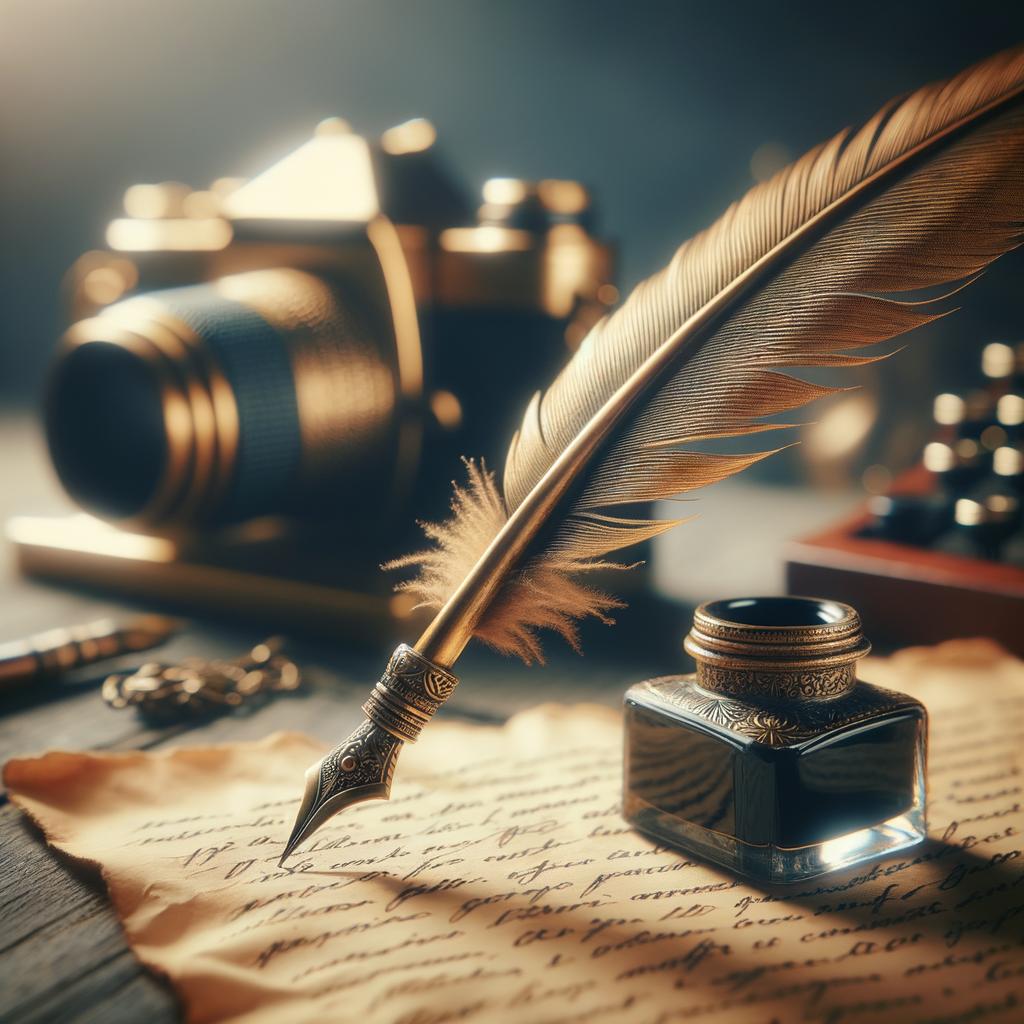As I sit here on this chilly Schenectady evening, a well-worn fountain pen resting idle in my hand, I can’t help but feel a gnawing heaviness in the pit of my stomach, a longing deep in my heart. Sighing, I fumble with a roll of stamps lying forgotten on the desk—tiny adhesive obituaries for a tradition now endangered. Before you dismiss me as just another old codger caught up in nostalgia, wallowing in ‘the good old days’, I urge you to pause. Maybe the past isn’t as perfect as the rose-tinted glasses of our memory tend to portray, and surely, technological advancements are not all demons in a brave new world. Yet, the sure, graceful strokes of ink on paper, the thrill of receiving a handwritten letter—a visceral experience now fading into the annals of history—still holds its own undeniable charm.
There was an art to writing letters back then, shaped by a meticulous, almost ritualistic process of selecting stationery, pulling out your favorite pen, and finally pouring your thoughts onto paper—literal extensions of your innermost self. The strokes of an ‘I’ declared more about the writer’s temperament than many wish to acknowledge. It was personal, vulnerable even, to let your handwriting—and by extension, your emotions, your very being—be scrutinized, judged by the recipient.
Do you remember the awe when you looked out to find a pile of letters by your doorstep? The sense of hushed anticipation as you sifted through the pile, recognizing familiar scrawl? You might have smiled at the misaligned letters, a playful testament to your niece’s first steps into the world of literature. Or you might’ve twirled your mustache in a futile attempt to hide a grin as you beheld your beloved’s loopy, ecstatic handwriting on a thin strip of parchment. Today’s sterile inbox could hardly replicate that emotion, that liveliness.
Oh, the younger generations sneer at the whimsical nostalgia of a bygone era. For them, the future lies in the crisp, machine-generated Times New Roman of an email body, an emoji a suitable replacement for the writer’s distinct personality. They boast of instantaneous communication, but in the bid to conquer space, they haven’t realized that they have conceded to time. Their words are all too often hastily typed on screens, devoid of sincerity, of thoughtfulness.
While I bemoan the lost era of handwritten letters, my lament isn’t just about antiquated sentimentalism. It’s about leaving behind a tangible legacy, a historical record. Each weather-beaten letter tucked away in an attic box or a rusty old trunk was a time capsule. Many centuries from now, historians seeking insight into everyday lives in the era of Instagram and TikTok will find little to trace. There are no feelings to be read in the pixels of the screen, no stories to glean from the scrolling lines of electronic text.
Consider the letter written by a brave young soldier from the pacific during World War II to his mother back in Schenectady. Or the political treatises exchanged between the Founding Fathers. Had these sentiments been expressed over Instant Messaging, the historical treasure trove would have been nonexistent.
Back when I was a spry lad of twenty visiting my old, reclusive Grandpa, I chanced upon a dusty trove of his own letters, correspondence with my Grandma during their courtship days. Reading them was like listening in on a conversation between two lovers, cherishing their words filled with raw, palpable longing separated by distance and the harsh realities of war.
In their quest for efficiency and immediacy, people are forgetting the value and beauty of anticipation. There was a particular excitement in waiting for a beloved’s letter—a sort of slow-burning joy that cultivated patience, decency. It kept relationships ethereal, respectful. This age of frantic texts and emojis is indeed making us lose touch with our emotional and reflective selves.
Indubitably, seeking a full-shift return to the age of letters is impractical, even ludicrous, in this digital era, but perhaps we could strive for a healthier balance—an integration of the old and the new. We could remember to take out a few moments from our hectic lives, to sit down and pen a note, a letter—just occasionally. Be it for an old friend who’d appreciate a heartfelt missive or for future generations that could catch a realistic glimpse of our existence, lives, and relationships in the 21st century. Let’s hold onto the lost glory of handwritten letters, if not for us, then for our legacy; the human touch woven in the thread of history.



